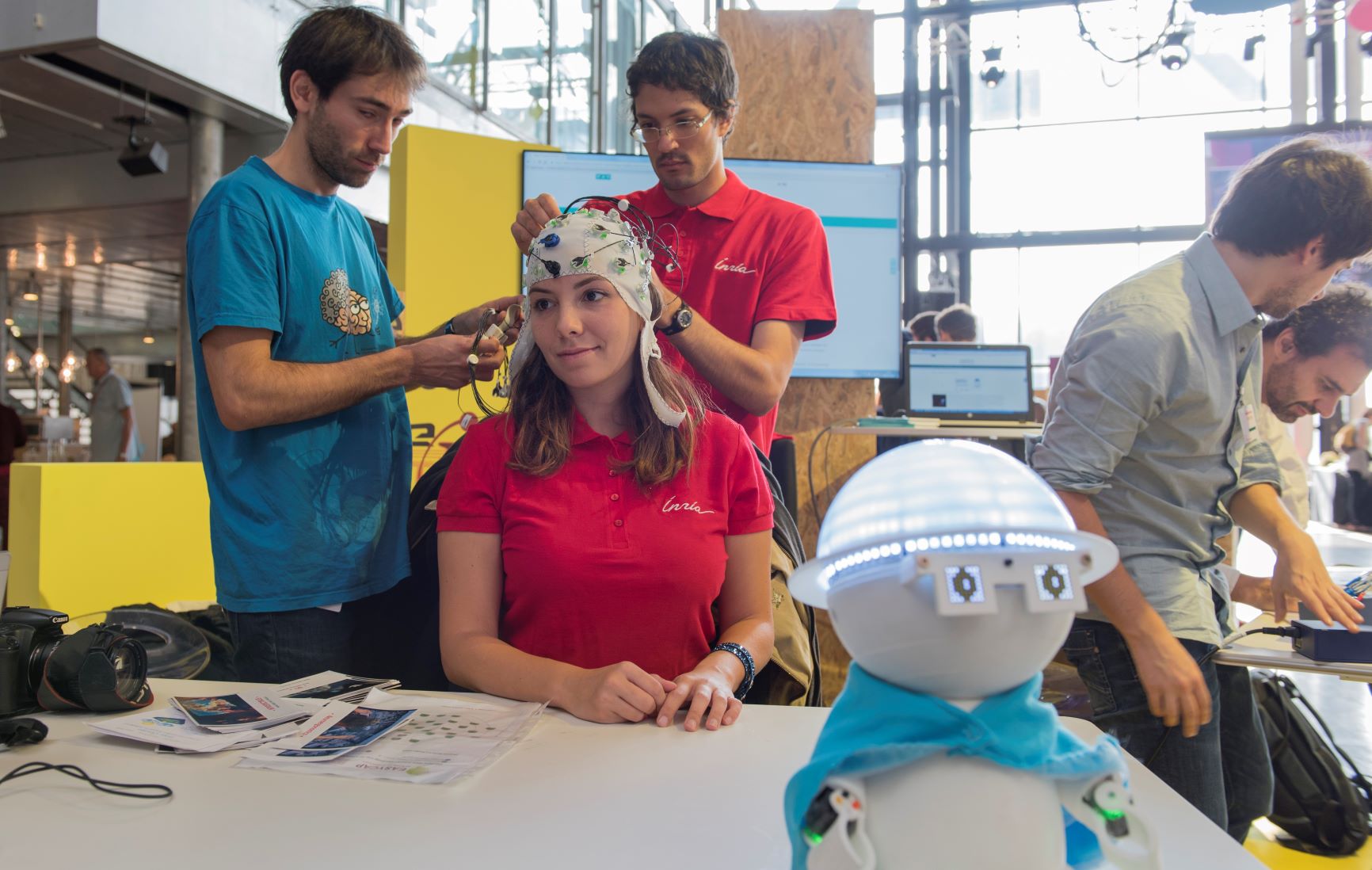Inria publishes a white paper on Education and Digital technology
Date:
Changed on 25/11/2021

After artificial intelligence, driverless and connected vehicles and cybersecurity, it is now education’s turn to be the focus of a white paper published by Inria. With support from colleagues from a range of different fields, the Institute has just unveiled a 130-page document outlining its suggestions on how education could be improved from a digital technology perspective.
Work first began on this white paper back in 2019, with a number of researchers from the Institute involved in the process. From the outset, the aim was to analyse the impact of digital technology as a vector for transformation in education, in addition to outlining the main challenges facing the sector, with a particular focus on equal opportunities, digital sovereignty and privacy. The paper identifies a number of research questions for digital science, in close collaboration with other disciplines such as education science, and ends by presenting certain recommendations.
The Covid-19 pandemic, which hit just as the paper was going through its final checks, forced its authors to consider the matter in greater detail, placing a particular emphasis on digital inclusion. The causes of this divide are both material and cultural, and there is a need to properly understand digital technology in order to get the most out of it. With contributions from a number of other individuals, the authors also explored the uses of digital systems in an educational context, from the point of view of both pupils and teachers (tools, platforms, etc.).
The “Education and Digital Technology: The Challenges” white paper is divided up into five chapters: the impact of digital technology on the education sector; the challenges facing the sector; research subjects linked to digital literacy; what is at stake for the sector in France; and seven recommendations for the digital transformation of education, which are broken down into three groups: (i) research initiatives, (ii) digital training, (iii) public action. The document also has three appendices. The first fleshes out the section from the main document on artificial intelligence; the second presents a number of examples of research involving Inria project teams; while the third provides examples of digital training initiatives in France.
This white paper reflects the Institute’s desire to strengthen the contribution it makes, not only through its research, but also by producing resources on digital literacy and the use of digital technology in education. As Inria outlined in its Objectives and Performance Contract 2019-2023, lifelong learning must be one of the Institute’s scientific priorities, on the same level as quantum computing, digital security and responsible AI.
Through this roadmap, the Institute also made a commitment to support major public policies and to continue the efforts it has been making towards digital literacy. This will involve strengthening ties with France’s National Education Authorities while promoting transdisciplinary research through its flexible, project-team based research model. As a public research and innovation institute, Inria must play its part when it comes to tackling the major issues facing society, such as France’s digital sovereignty within Europe, and this will require high-quality education on these subjects.
Inria has been committed to this objective for a number of years now, having launched a range of initiatives linked to digital literacy: specific MOOCs for teachers and students; scientific outreach initiatives aimed at building bridges between digital science and the wider public; and the deployment of large-scale programmes (such as Class’Code, its various different partners, and “1 scientist, 1 class: no problem!”).
Beyond its own projects, the Institute also has a number of project teams whose research is focused on digital literacy and the use of digital technology in education, such as CORSE, Flowers, Mnemosyne, Potioc, SCOOL (formerly SequeL) and Wimmics.